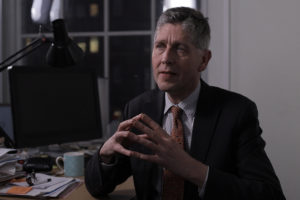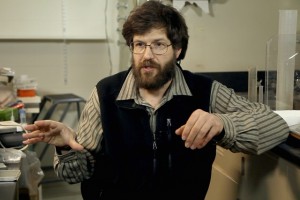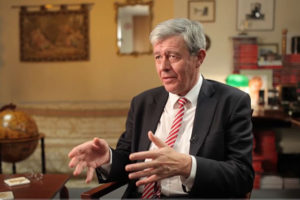Tactile Sensitivity
Cognitive neuroscientist Patrick Haggard on the Pacinian corpuscle, three attributes of the tactile sensations...
What is the modern theory of aging? Does it actually happen due to mutations or due to cellular responses to mutations? Professor at Harvard Medical School, Department of Genetics speaks on the recent achievements in the field of aging.
Now one of the leading theories behind aging is the mutation theory. That’s the idea that our body accumulates mutations all the time, and these lead to declining of our bodily functions. As you may well know, mutations are largely irreversible. The good news is that maybe it’s not the mutations themselves that cause aging, but the cells overreaction to the DNA damage that occurs.
SIR proteins help repair DNA. They bind DNA and help it fold correctly, and DNA breaks are repaired more efficiently. The problem is that if they don’t go back to where they came from, genes that were once silenced and controlled by SIR proteins, are now expressed. They turn on- you get a stress response which is ok in the short term, but in the long run you end up with a cell that has a permanent chronic stress response. This is not good for a yeast cell and it’s not good for humans either.
So what does this have to do with the reversibility of aging? Well, if it’s true that it’s not the mutations and breaking in the DNA that cause aging, but the cells reaction, we should be able to compensate for these reactions. One thing we could do would be to put in more SIR genes so that genes make more SIR proteins. So instead of having them more distracted we could have enough proteins to go around, so we could control those genes and have the repair process go on in the same time and keep those genes silent when they should be.

Cognitive neuroscientist Patrick Haggard on the Pacinian corpuscle, three attributes of the tactile sensations...

Associate Prof. Konstantin Khrapko of Harvard University on mutations in non-nuclear DNA, substantia nigra, an...

Neuroscientist Karl Friston on the development of the free energy principle, what remains unknown about the br...